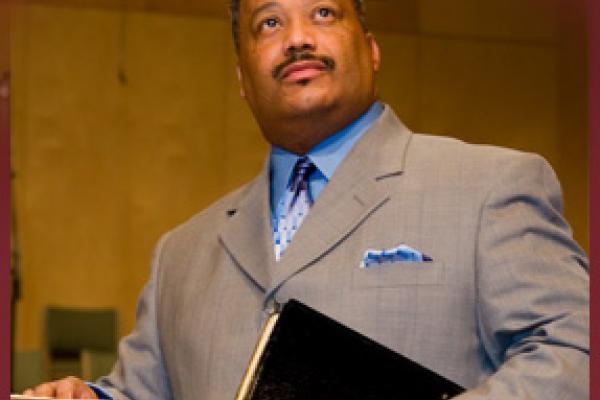After months of urging from other Baptists around the country, the Rev. Fred Luter told his African-American congregation that he will seek to become the first black man to lead the predominantly white Southern Baptist Convention.
Several Baptist leaders said Luter becomes the prohibitive favorite for the post, to be filled in a potentially historic election at the Southern Baptists' annual meeting in New Orleans in June.
SBC Today, a Baptist-focused news website, carried the announcement on earlier this week. Youth pastor Fred "Chip" Luter III separately confirmed Luter's announcement to his church last Sunday.
Luter appears to be the first candidate to declare for the post, which will become vacant this summer when the Rev. Bryant Wright of Marietta, Ga., finishes his second one-year term.
Many began openly promoting Luter for the top job last summer, moments after he was elected the convention's first African-American first vice president.
"If he runs, he'll get elected overwhelmingly. He may be unopposed," said Daniel Akin, president of Southeastern Baptist Seminary in Wake Forest, N.C.
No other candidates have announced so far. Akin said other potential candidates were judging their chances on whether Luter decided to run.
"I'd be very surprised if there were any other substantial candidates," said Russell Moore of Southern Baptist Theological Seminary in Louisville, Ky.
The Southern Baptist president has no authority over the denomination's 51,000 autonomous churches and missions, but the president exerts influence by appointing the most important committees in Baptist organizational life. The denomination's turn toward theological conservatism in the 1980s was triggered by the election of a succession of conservative presidents.
Akin, Moore and others say they are eager to elect Luter, both for his leadership gifts and to demonstrate Southern Baptist acceptance of the changing face of their work.
Luter is widely known around the convention, having preached in hundreds of pulpits. Moreover, supporters said he is widely admired as a pastor in his own right. Luter built Franklin Avenue Baptist Church into a major success, then led his congregation in rebuilding after it was destroyed by Hurricane Katrina.
Luter's church was a once a predominantly white Southern Baptist congregation dying on the vine after its neighborhood became increasingly black in the 1970s. A street-corner preacher with no previous pastoral experience, Luter took over in 1986. The church kept its Southern Baptist affiliation while he built it into the predominantly black powerhouse it is today.
Akin said several Baptist congregations around the country tried to recruit Luter as a pastor or co-pastor, believing he might be available after Katrina. "He was like Peyton Manning as a free agent."
Akin said Luter's stature grew in his decision to remain in New Orleans. "You have to have unbelievable respect for a man who made that kind of commitment," Akin said. "My God, look at what he did."
Growth in traditional white congregations in the 16-million-member Southern Baptist Convention has plateaued. In recent years the denomination has actively sought to reach out to nonwhites, typically Hispanics, African-Americans and Asians.
In 1990, 95 percent of Southern Baptist congregations were white; now the figure is 80 percent, said Scott McConnell of LifeWay Research, a church-related institute.
"Some critic said of us that the Southern Baptist Convention is as white as a tractor pull," Moore said. "If that remains the case, the Southern Baptist Convention has no future. I think Fred Luter's election will be pioneering; I pray it will not be an anomaly."
Meeting in Phoenix last summer, Baptists adopted a plan requiring its organizations to nourish minority leadership for the future.
That's a turnabout for a convention that was formed in 1845 by Southern slaveholding Baptists who broke away from anti-slavery Baptists in the North.
For much of the 20th century, Southern Baptist pastors and rank-and-file church members across the South supported white supremacy and resisted the civil rights movement.
But in 1995, the convention formally apologized for its past and committed itself to racial reconciliation.
"We need to live up to what we said in 1995," said David Dockery, president of Union University in Jackson, Tenn. "This would be a positive step, but only a first one."
Bruce Nolan writes for The Times-Picayune in New Orleans. (Via RNS.)
Got something to say about what you're reading? We value your feedback!
